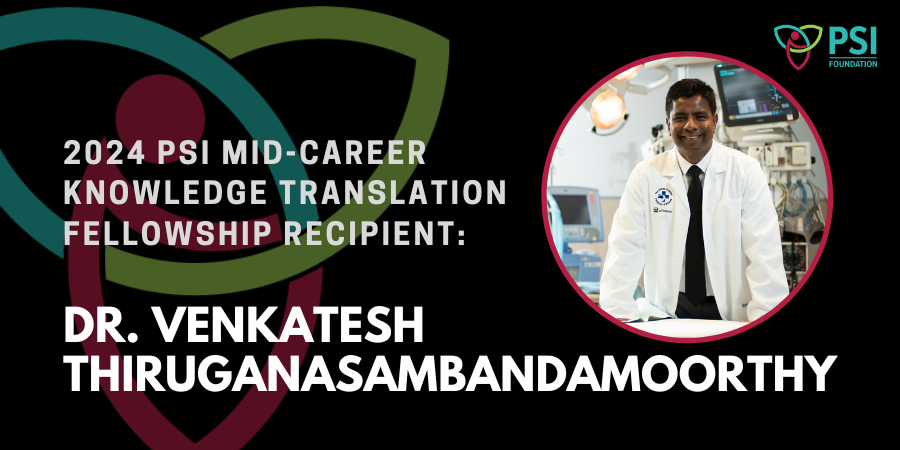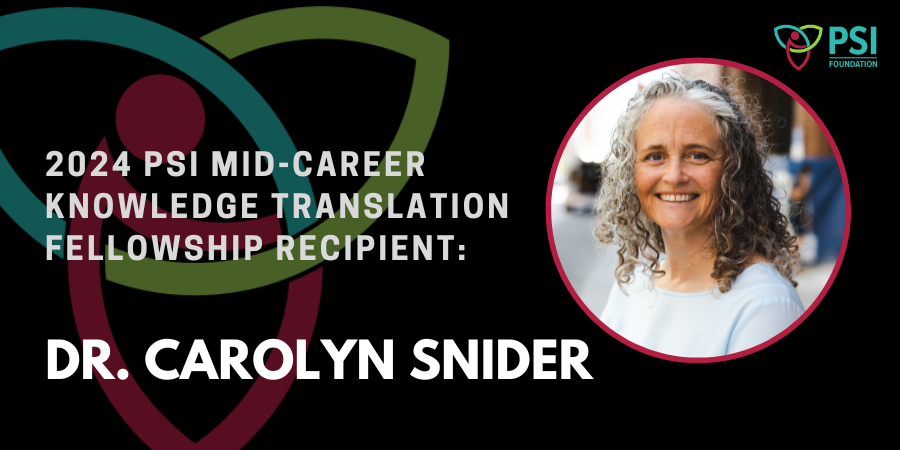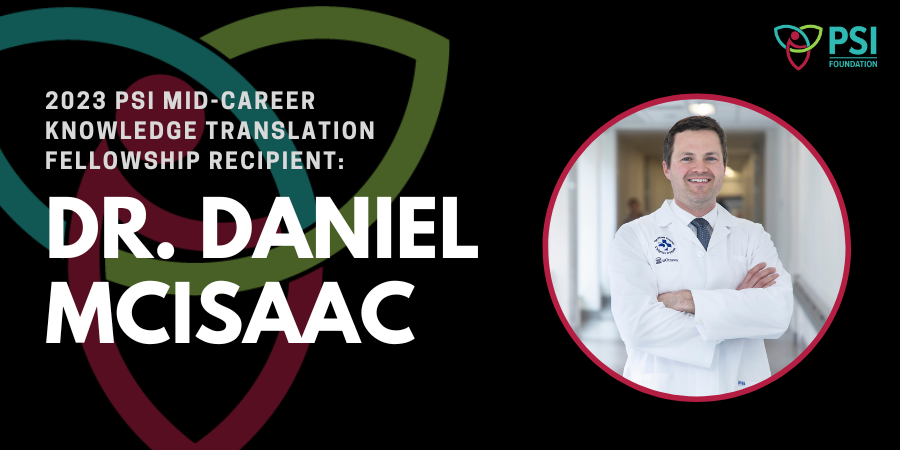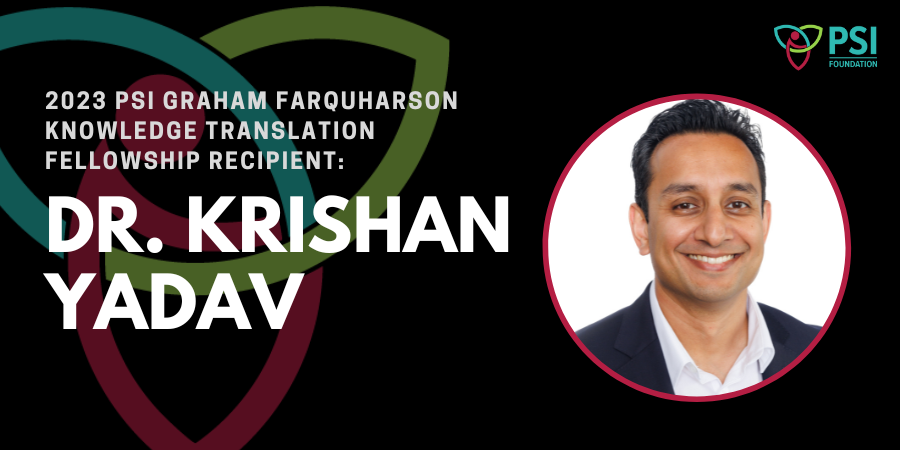“Our research program plans to undertake knowledge translation of the Canadian Syncope Pathway at 16 hospitals across Canada, evaluate the effectiveness of the implementation strategies; develop and implement a prehospital syncope risk tool for diversion of very-low risk patients from the emergency department to alternate care pathways, and to develop and implement an artificial intelligence algorithm to semi-automate emergency department syncope care. By undertaking the above research and knowledge translation activities, our aim to improve the health of Ontarians by enhancing patient safety while reducing healthcare cost by improving effectiveness. Our studies will provide a template for developing and implementing practice recommendations/guidelines for common emergency conditions and incorporating technological advances such as artificial intelligence and remote monitoring of patients to improve the health of Ontarians.” – Dr. Venkatesh Thiruganasambandamoorthy
PSI Foundation is pleased to announce Dr. Venkatesh Thiruganasambandamoorthy as the recipient of the 2024 PSI Mid-Career Knowledge Translation Fellowship.
About Dr. Venkatesh Thiruganasambandamoorthy
Dr. Venkatesh Thiruganasambandamoorthy is a Professor in the Department of Emergency Medicine and the School of Epidemiology and Public Health at the University of Ottawa. He is also an Emergency Physician at The Ottawa Hospital and a Senior Scientist within the Ottawa Hospital Research Institute (OHRI). To date, Dr. Thiruganasambandamoorthy has published more than 100 peer-reviewed papers and secured over $6 million in peer-reviewed research funding as principal investigator. Dr. Thiruganasambandamoorthy’s research program focuses on robust risk-stratification and health services delivery of emergency department syncope.
About the PSI Mid-Career Knowledge Translation Fellowship
The PSI Mid-Career Knowledge Translation Fellowship is intended to provide salary support for a mid-career physician researcher in Ontario, who has demonstrated the ability to successfully complete high impact knowledge translation research. The total amount of the award is $400,000 over two or three years, with the sponsoring institution providing matching funding, contributing to 50% of the total award.
PSI acknowledges that mid-career can be a challenging time for physician researchers. During this phase, there are often additional academic roles and responsibilities including committee work, leadership positions, and mentoring of junior investigators, while clinical work continues. PSI recognizes the importance in supporting this phase of an investigator’s trajectory.
Dr. Thiruganasambandamoorthy highlights the importance of salary support awards for physician researchers at the mid-career level.
“During the early career phase, several organizations including the researchers’ home institutions provide support to start a research program. Unfortunately, currently no support is available for mid-career physician researchers except from PSI. This support at the mid-career level is critical to translate all the research findings from the early career stage into day-to-day clinical practice. Support at the mid-career and senior career level will improve the health of the population (Ontarians), and prominence at global stage. More importantly, it will help the researcher lead system level changes to impact healthcare and train the next generation of researchers for delivering world class care to Ontarians and Canadians. ”
Fellowship Funds to be Used for Optimizing Management of Patients with Syncope
Dr. Thiruganasambandamoorthy’s research focuses on health systems improvement, specifically development and implementation of tools to reduce resource utilization through robust risk-stratification while improving patient safety. The focus is on the ‘Optimal Management of patients with syncope’.
Syncope (fainting) is a common with 160,000 patients visiting Canadian emergency departments (ED) annually. About 16,000 (10%) will have serious underlying problems (blood clots in the lung, bleeding) and/or will die within 30 days. One-third/half of these conditions will not be evident during the ED visit. Dr. Thiruganasambandamoorthy and his team developed a robust tool, the Canadian Syncope Risk Score (CSRS) and are embarking on its knowledge translation (KT, i.e. raising physicians’ awareness and facilitating its use). With input from stakeholders including KT experts and patients, they developed practice recommendations, the Canadian Syncope Pathway, identified barriers/facilitators for implementation, and through user-centered design workshops, they identified strategies and developed educational materials for implementation.
During the fellowship, Dr. Thiruganasambandamoorthy will complete a multi-centre trial to implement the Pathway and evaluate how evidence-based implementation strategies supported its uptake in practice. Additionally, two-thirds of patients with syncope arrive to the ED by ambulance. They plan to validate and implement a paramedic tool for identifying very-low-risk patients for diversion from the ED. Finally, the research team plans to develop and implement an artificial intelligence algorithm to semi-automate ED syncope care.




